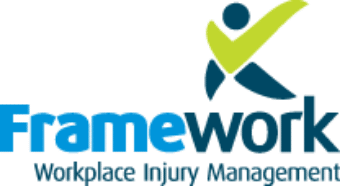A friend that I study with visited me recently with his wife. Cheekily, she chastised us for overusing the word discourse. Why don’t you just say conversation or talking” she suggested? Almost simultaneously, and defensively, we responded by stating our position – that discourse is so much more than the spoken words. Certainly in the workers compensation discourse.
Lara Lessa [ii], who summarizes the notions of French social theorist Michel Foucault, states that discourse comprises systems of thoughts composed of ideas, attitudes, courses of action, beliefs, and practices that systematically construct the subjects and the worlds of which they speak. Foucault maintained that discourse is about the transference of knowledge and power. In fact he argued that power and knowledge are inter-related and therefore every human relationship is a negotiation of power.[iii] Power, he said, is always present and can both produce and constrain the truth.[iv]
Disempowering Effects of Workers’ Compensation Discourse
Lately I’ve been thinking about the power differential amongst the many stakeholders in the workers compensation discourse.
For example, those letters that workers receive from the insurer soon after becoming a claimant. The ones that refer to the legislation and even quote from it. The reference to compliance and the vague but implicitly threatening consequences of non-compliance. The notion of provisional liability and reference to entitlements under the act. If discourse is about transferring knowledge and power, I wonder how this kind of language affects a newly injured worker’s sense of empowerment?
I also wonder about the sudden world of paperwork a worker is thrust into. We need a workcover certificate of capacity, a return to work plan and an injury management plan. Often there’s a treatment plan as well. They sign various informed consent templates and a declaration that they aren’t working elsewhere. The conventional wisdom seems to be that it’s all necessary. But even if we set aside the argument of the necessity of all of this paperwork, we can’t ignore the fact that it has an effect.
The Impact of Overwhelming Paperwork on Employee Empowerment
In my conversations with insurers and employers I often hear the argument that they wish the worker would take more initiative or be more proactive. If the written component of the discourse is overwhelming, if they’re flooded with information, how does this impact on the worker’s level of empowerment? When a worker is provided with a letter explaining an organisation’s privacy policy, complete with references to the relevant legislation, and then asked to sign an ‘informed consent’ are they really informed? Or does the social context make it very hard for them to ask, “what does this mean?”
It seems to me that the argument put forward around paperwork is well intended and is an attempt to provide the worker with knowledge. However, are we delivering this information, in large slabs, because we want to inform and empower, or because we want to be able to prove we provided them with all of the necessary information? In Foucault’s language, are we producing or constraining the truth? Are we so myopically focused on ‘telling’ that we’re constraining the injured workers’ capacity to learn and understand? Discourse, according to Foucault (1977, 1980, 2003), is “related to power as it operates by rules of exclusion. Discourse therefore is controlled by objects, what can be spoken of; ritual, where and how one may speak; and the privileged, who may speak.”[v]

The Excluding Power of Jargon and Acronyms
One of the shortcuts we all take within a sub culture is to use acronyms and jargon. They fall into common usage and we become desensitized to their use. However, in the context of discourse operating by rules of exclusion, I think it’s easy to see how we can fall into the trap of disempowering those that are new to the process of recovery from work related injury. I wonder how workers feel when they learn they have spondylosis or lateral epicondylitis? Or when they’re told to get a ‘certificate of capacity’? One worker I spoke with this week, mis-heard her insurer and thought she needed to get a ‘certificate of competency’.
I recently assisted two injured workers who worked, side by side, in the same store. One was a young lady who had been in the workforce for less than 5 years and the other was a store manager who had over 25 years of work under his belt. The young lady had never had an experience with workers compensation but the store manager had well established “systems of thoughts composed of ideas, attitudes, courses of action, beliefs and practices…” about workers compensation. Both were offered ‘early intervention’ in the form of treatment. The young lady jumped at the opportunity and recovered quickly but when the same offer was made to the store manager, and his wife subsequently opened a letter from the insurer – and she asked him “are you on compo?” – he had a very strong reaction and refused all offers of treatment and assistance.
If discourse isn’t just talking, if discourse is about the transfer of power, I wonder how we can use this understanding to create a more empowering experience for both workers and employers?
Bibliography
[ii] I. Lessa (2006). “Discursive struggles within social welfare: Restaging teen motherhood”. British Journal of Social Work 36 (2): 283-298. doi:10.1093/bjsw/bch256
[iii] Power/Knowledge: Selected Interviews and Other Writings, 1972–1977. M Foucault. Selected interviews and other writings 1972,1977, 1980 – Pantheon
[iv] S. Strega (2005). The view from the post-structural margins: Epistemology and methodology reconsidered. In L. Brown, & S. Strega (Eds.), Research as resistance (pp. 199-235). Toronto: Canadian Scholars’ Press.
[v] M. Foucault (1972). Archaeology of knowledge. New York: Pantheon. ISBN 0-415-28752-9.
Go back to Homepage

